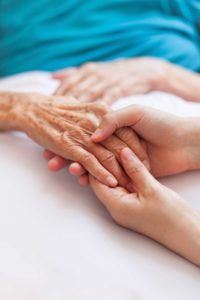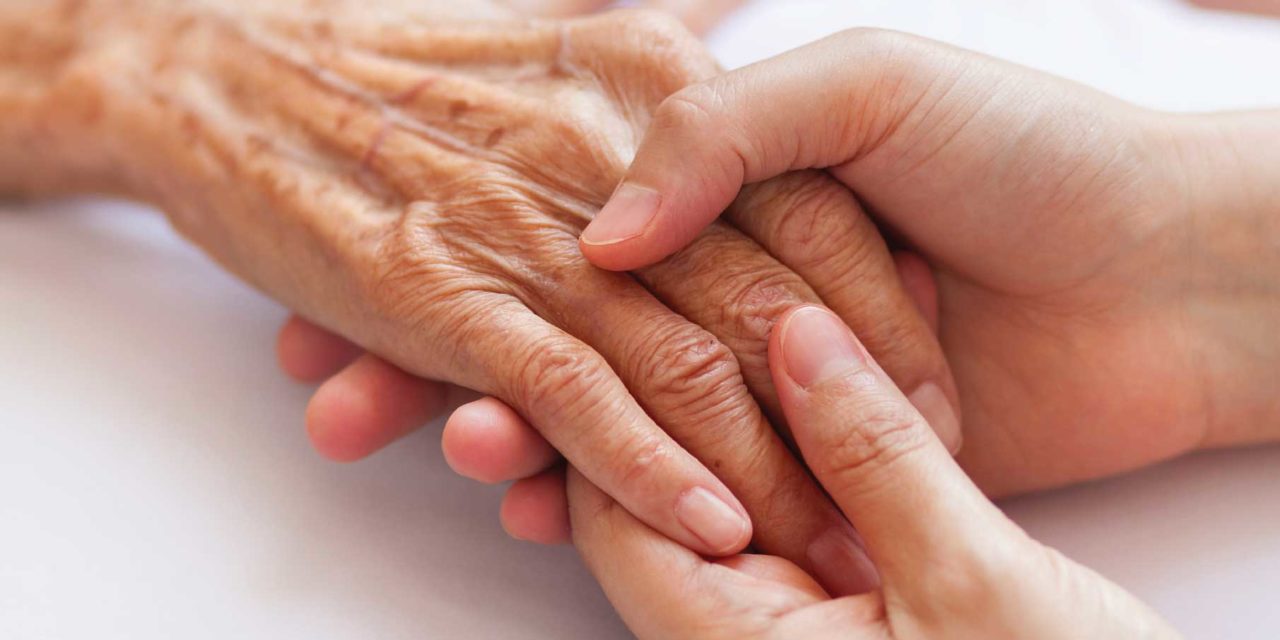 SPECIAL SECTION: AGING WITH GRACE
SPECIAL SECTION: AGING WITH GRACE
by Kym Liddick-Byrnes
Hospice is end of life care that “wraps around the patient and family,” explains Regina Bodnar, executive director of Carroll Hospice. And that care unfolds according to the unique needs of each individual who falls into the hands of a team of professionals and volunteers.
Nurses, social workers, spiritual care providers, grief specialists, aids and volunteers work together to provide compassionate care.
That care unfolds in a host of ways.
Most of the patients in Carroll Hospice receive care in their homes. Some patients who need more serious medical care, or who don’t have caregiver support in their home, elect to receive services at a facility like the Dove House, Carroll Hospice’s in-patient treatment facility.
It is a myth that one should wait until the final days of a loved one’s life to call hospice. Hospice offers a tremendous range of services that can help a patient and family prepare for weeks and months before their loved one actually passes.
Bodnar said she hears regularly that a person’s only regret in utilizing hospice services was that they didn’t get services sooner.
Patients who are frail, elderly or dealing with a chronic illness that is becoming more difficult to manage every day will, at some point, likely have to transition to end of life care. Others receive a diagnosis where their physician, with great clarity, is able to say that the disease will not be cured and the patient needs to think about alternatives to curative treatment.
Every patient needs to have a referring physician who can attest to the fact that there is an illness present that will likely result in the patient dying within six months, according to Bodnar. Everything hospice does, she said, is on physician order.
Once a physician has certified that a patient qualifies for hospice services, hospice team members meet with the patient and family to determine the best plan for moving forward.
“There’s no perfect way to do this,” Bodnar said. “We focus on what is most important to the patient and family under the umbrella of care understanding that the goal is comfort rather than cure.”
Five things to know about hospice:
- Carroll Hospice is a nonprofit organization, committed to providing care for all regardless of ability to pay, and relies on contributions from the community and fundraisers to help those without financial means. But hospice is an established part of the health system and as such hospice care is a covered Medicare and Medicaid benefit and covered by most insurances.
- Research has shown that people who receive hospice care can live longer, with better quality of life, than those who don’t. According to a study published in the Journal of Pain and Symptom Management, 4,500 hospice patients with cancer or congestive heart failure lived on average 29 days longer than those who were not on hospice.
- It is very important to understand that hospice provides supplemental care, it is not meant to be 24-7 round the clock medical care. On average, hospice professionals might spend two to four hours a day, three to five days a week in the patient’s home providing a range of services. Families should be prepared to have caregivers – family or friends, or paid help – provide support services to the patient beyond what hospice provides.
- Many people are understandably hesitant to go down the hospice path because it suggests that either the caregiver or the patient has given up on life. Hospice does not mean that medical treatment will end, it is aimed primarily at relieving pain – mental, spiritual and physical – and stabilizing the patient’s condition. If a patient does recover and hospice care is no longer needed, the patient can elect to stop receiving services until and if they are deemed necessary again.
- Hospice care is not only for the elderly. It is for anyone whose doctor believes they have six months or less to live if an illness runs its normal course. Infants, children, teens, young adults – anyone facing the end of life, and their loved ones, can benefit from hospice services.

